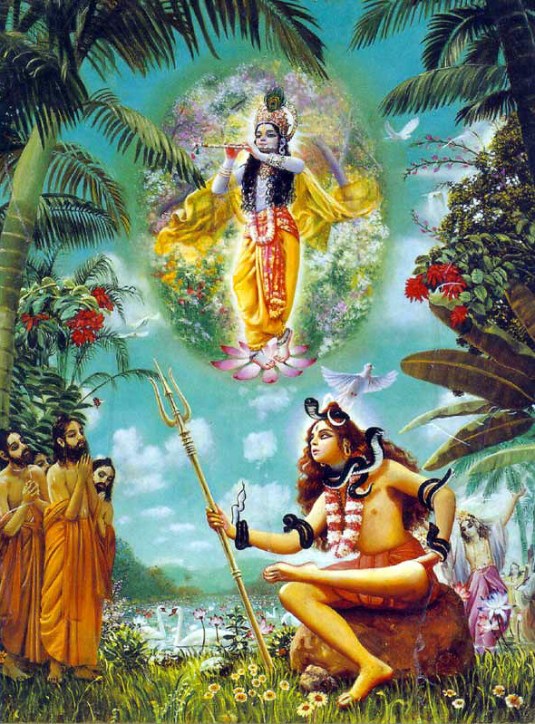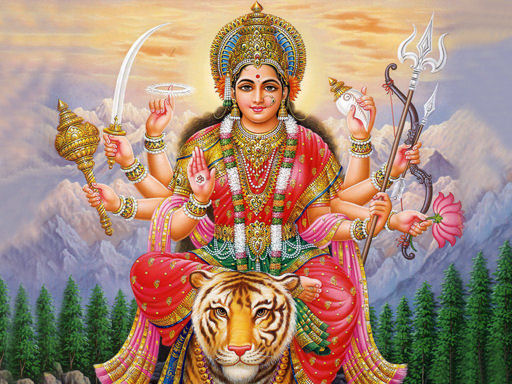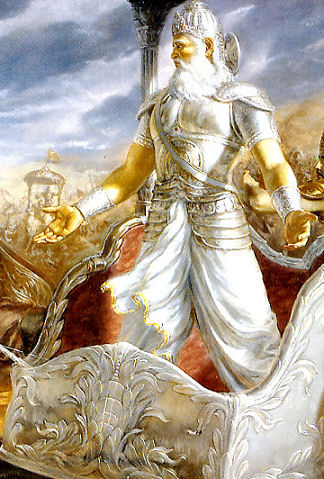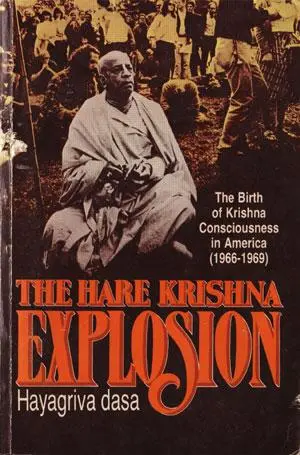
Sarasvatī, the Goddess of Learning
click on image to enlarge
The other day I was doing some service at the Hare Krishna Temple here in New Vrindavan, West Virginia, and I ran into some Indian guests. After we greeted each other one of them asked me “when did you become a Hindu?” “I never became a Hindu” I replied, “I am a Hare Krishna devotee, a disciple of His Divine Grace A. C. Bhaktivedanta Swami Prabhupada. I am not a Hindu. I worship the Supreme Personality of Godhead Lord Kṛṣṇa.”
So just to make things a little clearer…both to myself and others, I did some research from Srila Prabhupada’s books to find the proper understanding of Goddess Worship, or worship of the demigods.
…Worship of demigods is discouraged herein because even the greatest demigods like Brahmā and Śiva only represent part of the opulence of the Supreme Lord. (Bg 10.42)
…The goddess of fortune, Lakṣmī, and all-powerful demigods like Brahmā and Śiva are engaged in the worship of Viṣṇu or Lord Kṛṣṇa; therefore who can be more powerful than Mukunda (Lord Kṛṣṇa) to be factually called the Supreme Personality of Godhead? The goddess of fortune, Lakṣmījī, Lord Brahmā and Lord Śiva are not independently powerful; they are powerful as expansions of the Supreme Lord, and all of them are engaged in the transcendental loving service of the Lord, and so also are the living entities. (from purport SB 1.18.21)
…Both the living entity and the demigods are subordinate to the will of the Supreme Personality of Godhead…not a blade of grass moves without the will of the Supreme Personality of Godhead. Generally, persons who are distressed in the material world go to the demigods, as they are advised in the Vedic literature. A person wanting some particular thing may worship such and such a demigod. For example, a diseased person is recommended to worship the sun-god; a person wanting education may worship the goddess of learning, Sarasvatī; and a person wanting a beautiful wife may worship the goddess Umā, the wife of Lord Śiva. In this way there are recommendations in the śāstras (Vedic scriptures) for different modes of worship of different demigods. And because a particular living entity wants to enjoy a particular material facility, the Lord inspires him with a strong desire to achieve that benediction from that particular demigod, and so he successfully receives the benediction. The particular mode of the devotional attitude of the living entity toward a particular type of demigod is also arranged by the Supreme Lord. The demigods cannot infuse the living entities with such an affinity, but because He is the Supreme Lord or the Supersoul who is present in the heart of all living entities, Kṛṣṇa gives impetus to man to worship certain demigods. (from purport Bg 7.21)
…Everyone thinks that his intelligence is perfect. Sometimes one employs his intelligence in the worship of Umā, the wife of Lord Śiva, in order to obtain a beautiful wife. Sometimes, when one wants to become as learned as Lord Brahmā, he employs his intelligence in the worship of the goddess of learning, Sarasvatī. Sometimes, when one wishes to become as opulent as Lord Viṣṇu, he worships the goddess of fortune, Lakṣmī.
Intelligence should be employed in the service of the Supreme Personality of Godhead. As soon as one uses his intelligence in this way, the goddess of fortune automatically becomes favorable to him. The goddess of fortune, Lakṣmī, never remains without her husband, Lord Viṣṇu. Consequently, when one worships Lord Viṣṇu he automatically obtains the favor of the goddess of fortune. (from purport SB 4.25.28)
Full text and purports from above excerpts More





















